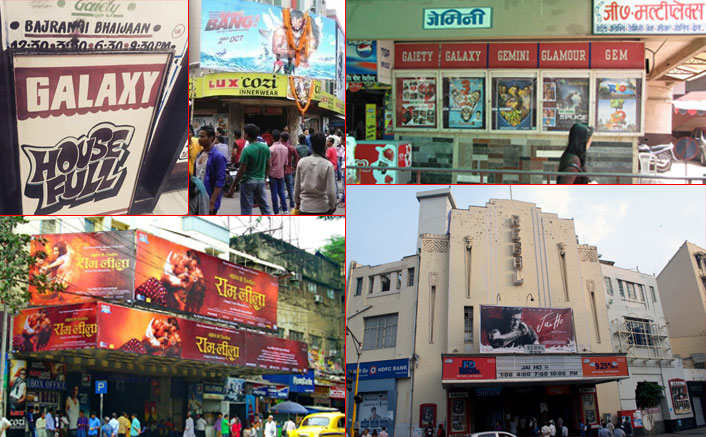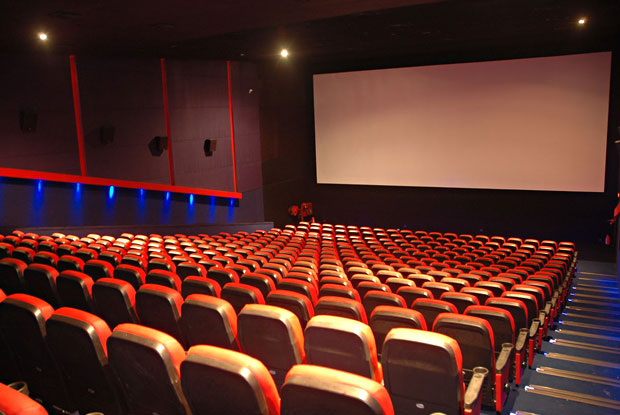We are living in an era of technological advancement, where we almost eat and sleep technology. While technology has been a boon in our life, it also offers certain disadvantages. In the past few years, Bollywood has turned out to be a major victim of technological disadvantage. While it is true that cinema has turned digital with halls providing Dolby sound, 3D viewing experience etc, have the number of cinema goers increased?
Shockingly not, rather they are diminishing. With single screen cinema halls making way for multiplexes, which offer a more comfortable viewing, the number is reducing every day. To put it simply, multiplexes are failing to draw the audience. Bengaluru-based film distributor Ajay Pal regrets that the number of single screen cinema halls, which are still way cheaper than multiplexes, is going to go down in the next 5 years and are soon to become a thing of the past.
Does that mean movie buffs are not watching films? Of course not! They are watching new releases right from the comfort of their homes, in trains and buses while travelling to their workplace and back, all thanks to mobile phones, which have made movie downloading just a tap away, thus, supporting PIRACY to a major extent. With the recent 4G boom, the tendency to download and watch films on mobile has witnessed a sharp increase. Major reason being not everyone can afford to spend Rs 170 or 250 or 450 on a movie, and with at least 2-3 films releasing every week, it becomes extremely difficult for the common man to shell out the amount and take his family to the theatre. Hence, piracy seems unstoppable in the present situation.

While filmmakers, actors, producers keep urging people to stop piracy, (which we get to see before almost every release) the words are actually falling on deaf ears. We are not saying this, diminishing box office figures of Bollywood films bear testimony to this fact. According to film exhibitor and distributor Akshaye Rathi, piracy is alienating the audience from theatres. He said, “The average people can’t afford huge ticket costs, but they need entertainment. Hence they resort to piracy.” While Akshaye agrees that mobile phones have become ‘one more avenue of entertainment to the people, just like VCRs, CDs and DVDs were in the past’ but he argues that watching movies in phones can never match with 3D viewing experience in theatres, with Dolby sound and other effects. Phones don’t and can’t make the experience of watching films special. He questions, “Tell me honestly, would you enjoy watching a film like Bajirao Mastani on your mobile?”
Distributor Ajay Pal also agrees with Akshaye on this. He said, “You can’t enjoy the beauty of a good cinema in small screen. Baahubali, for example, has fantastic graphics, VFX. What people fail to understand is that you wouldn’t get that feel on your mobile.” Despite piracy almost turning into an epidemic, films like Dangal, Sultan and Baahubali continue to mint gold at the box office. Ajay explains, “These days you can read a film’s review within a few minutes of its release, thanks to the internet. So you decide, which film is good and worth watching at the theatre. Accordingly, you go for it. I feel if a film is really good, nothing can stop it from performing at the box office.”

He further argues that it’s not just the ticket prices at multiplexes, which are driving away people; it’s also their policy of not allowing outside food. Gone are the golden days when we could easily walk into single screen cinema halls with packets of chips or popcorn or soft drink bottles in our hand! That has become a distant dream with most of the multiplexes not even allowing water bottles, leaving the viewers with no choice but to buy food and water from their food courts which again are unnecessarily overpriced. Even a packet of popcorn or a glass of soft drink does not come below Rs 120. Hence, food and ticket combined, it becomes a pretty much expensive affair!
In this crucial moment of crisis, what can save cinema? What can bring the audience back to theatres? ‘Value for money entertainment,’ feels Akshaye Rathi. He said, “Films made on a smaller budget should be sold at a cheaper ticket. Only then will people be interested in watching it. Why should a person pay the same price for a big-budget film and a relatively smaller film? But unfortunately, multiplexes don’t do this. Unless entertainment is made reasonably priced and affordable, people will continue to resort to other avenues like piracy.”
Multiplex owners, are you listening?



 Follow Us
Follow Us







